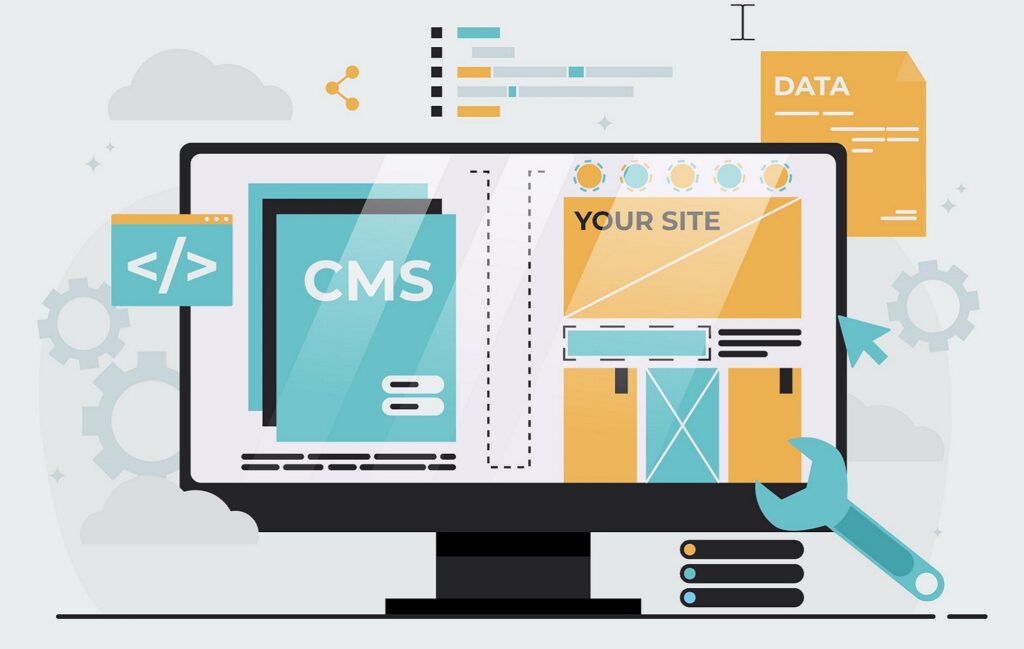
Custom Vs CMS Website Development Explained
In today’s fast-evolving digital environment, choosing an effective website development approach for any business seeking online success is of utmost importance. Two approaches stand out: custom website development and CMS website development. Understanding these differences will allow you to make an informed decision that suits your goals, budget and scalability requirements.
What Is CMS Website Development?
Content management system website development refers to creating websites using platforms like WordPress, Joomla or Drupal which enable users to easily create, edit and manage digital content without needing to write complex code. CMS platforms have proven popular among small to mid-sized businesses due to their user-friendliness and cost effectiveness.
What Is Custom Website Development? Custom website development refers to creating websites from scratch using programming languages and frameworks such as HTML, CSS, JavaScript, PHP or React that meet a business’s unique functional and design requirements. While this approach offers greater flexibility and performance benefits, it typically requires a larger budget and longer development timelines.
Key Differences Between CMS and Custom Development Solutions
1. Design and Flexibility
Custom websites allow developers to design everything from scratch in accordance with branding and user experience requirements, while CMS platforms typically provide pre-designed templates which, while customizable to some extent, have inherent restrictions that limit design possibilities.
2. Development Time
Content management systems (CMSs) allow website launches more quickly thanks to pre-made templates and plugins; custom development requires planning, coding, testing, debugging and deferring work on schedule – thus lengthening its timeline significantly.
3. Cost
CMS development tends to be more cost-effective due to reduced development and maintenance expenses, while custom websites tend to deliver long-term ROI due to improved optimization and scalability.
4. Maintenance and Scalability
CMS platforms are easy to update and manage for non-technical users, making them ideal for enterprise websites with heavy traffic loads that need constant upkeep. But for higher scalability needs that demand custom websites instead, custom solutions may provide superior performance under heavy traffic loads, adapt more easily to changing demands, and provide flexibility to accommodate future needs.
5. Security CMS
Platforms can become vulnerable to common attacks if not regularly updated and/or insecure plugins are used, while custom websites require thoughtful design as well as ongoing implementation and security practices for maximum protection.
Which Solution Should You Pick? Your ideal selection depends on your business goals. If you require an economical, quick solution with standard functionality, CMS could be ideal. But for projects requiring unique features and custom integrations that necessitate custom development or customized integrations.
SEO and Digital Strategy Considerations Both
CMS websites and custom sites can be optimized for search engines, although the approaches will differ. CMS platforms often include plugins to assist with on-page SEO, sitemap generation and metadata management while custom sites may require fine-tuning from the backend to meet Google Core Web Vitals or technical SEO benchmarks.
Content Structure and Readability
A CMS makes content publishing simpler for marketers by providing tools to create SEO-friendly articles with headings, images, alt text and internal linking strategies – features essential to increasing search engine results visibility.
How Each Method Supports Business Goals
Businesses seeking rapid content updates and digital marketing benefit greatly from CMS platforms, like blogging platforms. Industries such as blogging, e-commerce and startups frequently depend on CMS due to its flexibility. Meanwhile, premium digital experiences often opt for custom development due to better branding, speed and functionality.
Future-Proof Your Website
Technology changes constantly, as do user expectations. A custom-developed website can remain future-proofed using emerging technologies like AI chatbots, headless architecture or advanced analytics tools; though CMSs are improving in this respect. Custom development still remains the leader when it comes to innovation adaptability.
Optimizing Keywords Semantically: Open source web platforms like WordPress have made CMS more accessible to businesses.
Hiring a freelance website developer can be an economical choice for small CMS projects.
Most companies begin by selecting from CMS marketplace themes available for responsive web design.
Businesses that require special branding consideration often turn to custom website solutions as part of their branding efforts.
CMS platforms often include drag-and-drop builders that simplify content creation.
Businesses seeking robust solutions often seek custom web development.
CMS tools facilitate multilingual website development for global audiences.
Content-driven website development is one of the many strengths of CMS platforms.
Businesses increasingly turn to mobile-first web development strategies in order to guarantee compatibility with smartphones.
Front-end and back-end integration is made simpler through custom development.
WooCommerce or Magento plugins in CMS platforms offer easy ecommerce website solutions.
Companies focused on long-term expansion often employ custom web architecture solutions for long-term expansion.
Performance optimization of websites plays an integral part of improving both user experience and SEO efforts.
Third-party API integration can make managing custom platforms for unique features easier.
CMS makes website content management simpler for marketing teams.
Conclusion
Selecting between custom and CMS website development depends on your company’s needs, goals, and available resources. CMS platforms tend to offer speed, affordability, and ease of use while custom development stands out for performance, flexibility, and scalability. Whichever route you take, make sure it aligns with long-term digital strategies as well as customer expectations.



